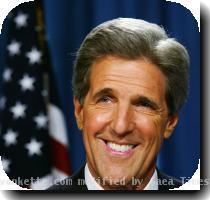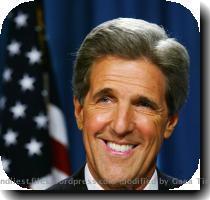Senate chairman says US should consider drone attacks against al-Qaida in Yemen
By Anne Flaherty, APWednesday, January 13, 2010
Senator: US should consider drone attacks in Yemen
WASHINGTON — A Senate chairman said Wednesday that the U.S. should consider airstrikes, armed drones and clandestine operations in Yemen to defeat an emboldened al-Qaida force there.
The remark by Democratic Sen. Carl Levin of Michigan, who chairs the Senate Armed Services Committee, is a rare public admission by a senior U.S. official that direct U.S. military action in Yemen is possible in coming months.
The U.S. was involved in at least one airstrike in December that missed a key al-Qaida leader but killed others. Such operations are highly classified and closely guarded by Yemeni authorities, who fear that a visible American role in the country will fuel an internal conflict.
Short of a ground invasion, “we ought to consider a broad range of options in Yemen because the broad-ranging threat of al-Qaida,” Levin told reporters following a three-day trip to Afghanistan and Pakistan.
Levin’s counterpart in the House, Rep. Ike Skelton, said in a separate interview that the U.S. should focus instead on training and equipping Yemeni forces with communications and transportation capabilities.
“You don’t rule out anything, but the real effort should be on (supporting) Yemen troops,” said Skelton, chairman of the House Armed Services Committee.
Al-Qaida forces in Yemen have emerged in recent months as a pressing threat to U.S. security, with ties to the recent airline bombing plot and Fort Hood shooting.
The White House and Pentagon have said there are no plans to send ground troops there, and Yemen has made clear it wouldn’t want them. Remaining options would include covert strikes against al-Qaida targets and increased aid to help train and equip Yemen’s own security forces.
Gen. David Petraeus, the head of U.S. Central Command, has said he would like to double military aid to Yemen, which is currently about $67 million.
Levin said drone attacks similar to those conducted in Pakistan should be considered because they have been successful in crippling al-Qaida forces along the Pakistan-Afghanistan border. He said he would expect the quiet permission of Yemen’s government.
“We think the government of Yemen now understands this is a threat to them,” he said.
Returning this month from what was supposed to be a quiet holiday break, key congressional leaders are summoning senior military and intelligence officials to Capitol Hill for private and public testimony on the terrorist organization’s grip on the Arabian Peninsula. They say they want accountability, particularly in the case of the government’s failure to keep a suspected terrorist from boarding a Detroit-bound jet.
“When something goes wrong when it shouldn’t, someone dropped the ball,” said Skelton, D-Mo.
Discussion of expanding the use of drones to Yemen came as the American Civil Liberties Union demanded that the government disclose the legal basis for such attacks.
“The American public has a right to know whether the drone program is consistent with international law, and that all efforts are made to minimize the loss of innocent lives,” Jonathan Manes, a legal fellow with the ACLU National Security Project, said in a statement.
Lawmakers and their aides said in recent interviews that Yemen has long been a primary concern for Congress as well as most military and intelligence officials. But the sense of urgency has increased in recent weeks following reports that al-Qaida forces in Yemen were linked to two major U.S. attacks.
The alleged gunman who killed 13 people at the Fort Hood Army post in Texas last November had been in contact with a radical cleric in Yemen. The same cleric has been tied to the Nigerian man who had reportedly trained with al-Qaida forces in Yemen before carrying explosives aboard a Detroit-bound plane.
“They are broadening their net. They are recruiting world wide. How do we turn that around?” said Rep. Adam Smith, a Washington Democrat who will be helping to lead an inquiry into Yemen security as chairman of the House Armed Services Committee terrorism subcommittee.
The Senate Foreign Relations Committee, chaired by Massachusetts Democratic Sen. John Kerry, also was considering taking up the issue, including a possible staff-written report following a recent trip there by committee aides.
Associated Press writers Lolita C. Baldor and Pauline Jelinek contributed to this report.
Tags: Afghanistan, Asia, Central Asia, John Kerry, Middle East, North America, Pakistan, South Asia, Terrorism, United States, Washington, Yemen

